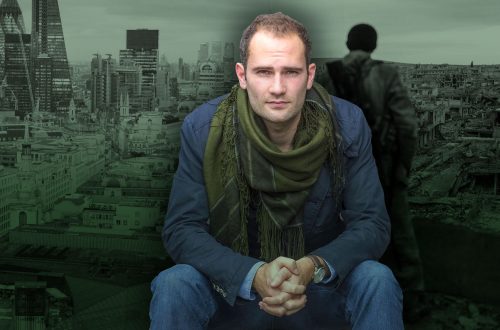By Mascha Kosky Sachs
With Syria’s impending ‘elections’, a farcical element has been added to the deepening crisis. Yet, in what may be its worst decision of 2014, the United Nations recently rewarded Syrian president Bashar al-Assad by naming his representative to a top post on a 24-nation committee charged with overseeing the ‘decolonization’ of the Falkland Islands, Bermuda, Gibraltar, and 14 other territories around the globe.
It is absurd that a representative of Assad’s murderous regime should be appointed for any position in the United Nations. Beyond that, the Syrian case points to the endemic inconsistencies plaguing the UN system, calling into question its commitment to the very values it espouses, namely universal human rights.
Whilst it is true that the UN has failed to stop the mass atrocities in Syria, it has not remained silent, taking some vital steps to isolate the regime and deny it legitimacy.
Most notably, the Security Council, despite all the blocking by veto-wielding members Russia and China, successfully adopted Resolution 2118 in September. The resolution expresses outrage at the use of chemical weapons in Damascus and threatens to apply the UN Charter’s enforcement measures, which include military force. In February, the Council adopted Resolution 2139, strongly condemning Syria for ‘widespread violations of human rights’ and demanding unhindered humanitarian access.
Even more robust action has been taken by the UN’s Human Rights Council. Though its members include Syria backers like Russia and China, none has a veto. Thus the 47-nation body has convened urgent debates and adopted numerous firm resolutions, one of which created a commission on inquiry that has become the lead authority documenting Syria’s ongoing crimes against humanity.
In addition, top UN officials such as the Secretary General and the High Commissioner for Human Rights have been outspoken in condemning Syria’s gross violations.
Yet, for each positive step taken, a counter step ensues. Murderous regimes covet propaganda victories and the UN has been generous in bestowing such prizes. Three stand out.
First, as Syria’s Juhayna news website trumpeted with glee, Syrian ambassador Bashar Ja’afari on 20th February was ‘unanimously re-elected as Rapporteur of the UN Special Committee on Decolonization.’ This shameful appointment did not prevent UN Deputy Secretary-General Jan Eliasson from addressing the committee on the very same day, praising its ‘important work.’
So while Assad’s forces gassed their own people in Damascus, dropped barrel bombs on them in Homs, and starved some 200 Palestinians to death in Yarmouk, his envoy has been sitting at a UN podium telling democracies like Britain, France, the U.S. and New Zealand how to treat their populations—all in exercise of his official mandate to end the ‘subjugation, domination and exploitation’ of peoples.
The committee’s annual debate on the ‘Falkland Islands (Malvinas)’ will be held in June and will likely be attended by key state personalities, if the previous years are anything to go by. In 2012, the Argentinean President herself, Cristina Fernández de Kirchner, appeared before the committee, followed by the Argentinean Foreign Minister Hector Timmerman in 2013.
Second, Syria was until recently a member of the United Nations Educational, Scientific and Cultural Organization’s human rights committee, elected in November 2011, months after the killings began. While Syria systematically violated human rights and added to its ever-rising death toll, it audaciously sat on this committee in judgment of individual petitions submitted by victims from around the world.
Only after criticism voiced by the independent monitoring group UN Watch did the US and the UK speak out. Yet, nothing happened and Syria stayed on until the end of 2013.
Third, last month at the Human Rights Council, a different example of UN action that has legitimized Assad’s regime materialized. The agency undermined its own credibility on Syrian human rights by adopting a resolution drafted by Syria, entitled “Human rights in the occupied Syrian Golan”. “To consider such a resolution while the Syrian regime continues to slaughter its own citizens by the tens of thousands,” said U.S. delegate Paula Schriefer, exemplified “absurdity.”
If the UN is getting it so wrong with an issue as high-profile as Syria, one can only imagine what rabid inconsistencies lie below the surface. The United Nations was founded to reaffirm faith in fundamental human rights. So long as its condemnation of the enemies of human rights lacks consistency, that faith will be wanting.
The author recently served as Research Fellow at UN Watch, a Geneva-based human rights organization.


